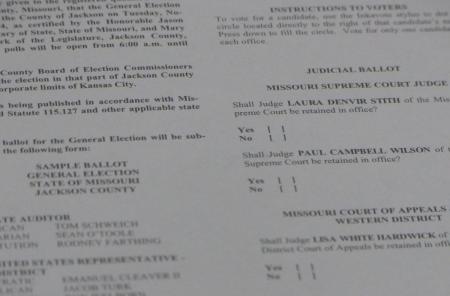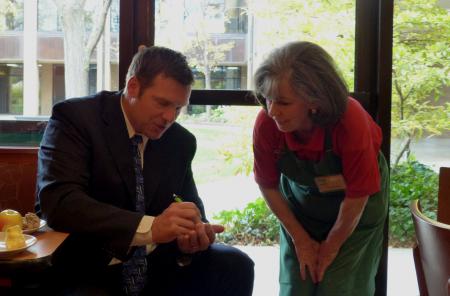Democracy International, established in June 2011, is a network of democracy initiatives that work on strengthening direct democracy and citizens’ participation at local, national and at transnational level. The aim is to realise tools and procedures that integrate the will of the people into political decision-making, including referenda on treaties, citizens’ initiatives and fair electoral systems. The Participatory Democracy Cultural Initiative, Inc., actively backs these DI's efforts and goals. Last Oct. 29 we published a Report titled "Direct Democracy in the USA" about the approaching mission to the United States of Cora Pfafferott and two other prominent DI board members in a so called "Big River Democracy Tour" to study the democratic processes taking place in the elections held last Nov. 4. It is very interesting to see the impressions on this group of Europeans caused by the United States electoral practices, including the extensive use of direct democracy mechanisms.
SUPER SIZE DEMOCRACY?!
It's not just a cliché: In the United States everything is huge: The width of the streets, the portions of food and the vastness of the landscape. After travelling Kansas, Missouri, Arkansas and Louisiana from 3 to 9 November on the occasion of US Election Day 2014, we need to add a fourth point: Democracy at local and state level. This is the lesson we learn from Democracy International's study tour. This is an account of five episodes.
by Cora Pfafferott
Long Ballot Papers 
For US election day 2014, the official ballot of County Jackson, Missouri asks voters to decide on 25 issues. Amongst those are the appointment of court judges and state auditors. Also, constitutional amendments proposed by the General Assembly or the people need to be decided upon. In general, 26 states have direct democracy at state level, 146 ballot measures in total are put to the people on 4 November 2014.
In the US state Missouri, citizens have to make up their mind on whether to establish early voting (which would mean the possibility to vote six days ahead of Election Day). Also, on the ballot are the evaluation of teachers and the question whether to allow evidence of prior crimes, which sex crime defenders have committed when brought to court. Visiting a polling station in Kansas on US Election Day makes clear: US citizens have the right to vote on a load of things. This stands in strong contrast to Germany for example, where voters just opt for their favorite political party every four years.
Electronic voting – Safe and Sound
In the evening of US Election Day we visit the Election Board of Independence, County Jackson in Missouri, which is the central body organising everything around elections. Here we learn how the voting and the counting of ballots function. In County Jackson, touchable screens are in operation, or in other words, voting with pen and paper are outdated. Yet to have record of the votes casted, a paper ballot is printed immediately after voting that the citizens then cast into ballots.
Those metallic boxes (also containing the votes of absentees) are transported from the voting districts ("precinct") to the Election Board. There, (paid) volunteers cross-check the ballots. Tammy, the Director of the Election Board, tells us that "the ballots are never left with one person". Or, putting it differently, a Republican and a Democrat always accompany the ballots on their way. This statement strengthens our overall impression: The casting and counting of votes is secure.
Sandwich with US Secretary State of Kansas
 "Is this the next President of the United States?" One might believe so when witnessing Kris Kobach, US Secretary of State of Kansas. Smart and rhetorically skilled (a graduate of law and politics from Harvard and Oxford), handsome (dressed in a white shirt, tie and dark suit) and a family man (married with four daughters, he brought along one of them). These are the characteristics to describe Kris Kobach with when watching him. We had the honour to meet the Secretary State in a coffeeshop in Kansas City on US Election Day. He was running for re-election so to be responsible for the elections and the registration of lobbyists for another four years. (And as we learned in the evening Kris Kobach won with a comfortable margin).
"Is this the next President of the United States?" One might believe so when witnessing Kris Kobach, US Secretary of State of Kansas. Smart and rhetorically skilled (a graduate of law and politics from Harvard and Oxford), handsome (dressed in a white shirt, tie and dark suit) and a family man (married with four daughters, he brought along one of them). These are the characteristics to describe Kris Kobach with when watching him. We had the honour to meet the Secretary State in a coffeeshop in Kansas City on US Election Day. He was running for re-election so to be responsible for the elections and the registration of lobbyists for another four years. (And as we learned in the evening Kris Kobach won with a comfortable margin).
...
[ Full text ]
Comments powered by CComment